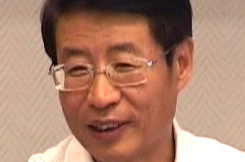TIAN KEQIN: Zunyi Conference reshaped beliefs of Chinese nation
 The enlarged meeting of the politburo of the Communist Party of China (CPC) held in Zunyi, Guizhou Province, in January, 1935 marked a turning point in the history of the Chinese revolution. The conference ended the domination of “left adventurism” particularly on military strategies and, Mao Zedong gained the power of leadership over the CPC. Beyond this, the Zunyi Conference is considered to have been highly influential in terms of boosting national morale.
The enlarged meeting of the politburo of the Communist Party of China (CPC) held in Zunyi, Guizhou Province, in January, 1935 marked a turning point in the history of the Chinese revolution. The conference ended the domination of “left adventurism” particularly on military strategies and, Mao Zedong gained the power of leadership over the CPC. Beyond this, the Zunyi Conference is considered to have been highly influential in terms of boosting national morale.
The decision made by the Zunyi Conference to march north to resist the Japanese and the establishment of the anti-Japanese national united front signaled a shift in the political direction that helped pull the Chinese revolution out of crisis and put it back on track to victory. Meanwhile, the criticism on the left wing’s errors and confirmation of the leadership of Mao Zedong during the conference indicated that the Sinicization of Marxism championed by Mao Zedong represented the right direction and that a breakthrough had been made in the process.
One point that I want to stress is the revolutionary spirit conveyed by the Zunyi Conference and the Long March. It is a legacy worth carrying forward now and in the future.
After the two Opium Wars and the Sino-Japanese War of 1894-1895, years of external invasion and the failure to explore ways to save the country left the nation frustrated. But, the Chinese people never gave up on national rejuvenation. However, all efforts, including the Revolution of 1911 led by Sun Yat-sen and the New Culture Movement, had failed to deal with the issue at the source.
At the core of culture is spirit, the basis of which is belief, and it is belief that constitutes the gene of a nation. The Zunyi Conference terminated the dominance of the left-leaning dogmatism and got the Sinicization of Marxism back on track, laying a key foundation for the shaping of the modern Chinese spirit. The mentality of the Red Army and the CPC at that time represented to a large extent that of the Chinese nation.
As early as the Gutian Congress, which was convened when the Red Army was newly established, Mao Zedong had proposed to equip the Party with the correct ideology and build the army in line with certain political principles, laying a foundation for the formation of a new type of people’s army. Moreover, the determined, practical, independent and tenacious spirit of the Red Army during the Long March served as the basis for rebuilding the modern Chinese character.
Soon after the central committee of the Party and the Red Army arrived in the northern part of Shaanxi Province, Mao spoke highly of the Long March, saying that it was the first of its kind in the annals of history and that it served as a manifesto, a publicity tool and a machine for sowing the seeds of revolutionary consciousness.
He added that it was the leadership of the CPC that led to the victory of the Long March because its cadres and other members did not fear difficulties and hardships, which affirmed the meaning of the Long March to reshaping the ethos of the Chinese nation.
The feat of the Long March by the Red Army astonished the world and the Chinese people themselves. The brave and dauntless Red Army defied death and suffering, bringing hope to the Chinese people. Such a tremendous change reverberated throughout the globe.
Looking back at the Long March and the Zunyi Conference, the lesson that one must adhere to the right political direction during times of arduous struggle should be valued.
The Zunyi Conference marked the shift of the Red Army from a passive position to an active position in the military. Though problems in the political line remained unsolved at the meeting, the strategy of establishing a base covering Sichuan, Shaanxi and Gansu after the convergence of the First and Fourth Front Armies of the Red Army and the strategy of going north to resist Japanese aggression and forming the national united front had made a big difference when the Japanese invasion into north China left the nation in peril.
Perseverance without fear of hardships provided a powerful weapon in the victory of the Chinese revolution. Just like any others, the Chinese revolution was not a smooth journey. The courage that was displayed in the Long March is needed in order to overcome hardships and fulfill revolutionary tasks.
It was through the tenacious struggles of generations and unremitting self-improvement of the nation that China developed from a poor, weak country into a prosperous one. It’s essential to carry forward such efforts to realize the Chinese Dream of rejuvenating the nation.
Tian Keqin is the chief expert for the research of the theoretical system of Chinese socialism, a major project supported by the National Social Science Foundation of China and a professor from Northeast Normal University.
